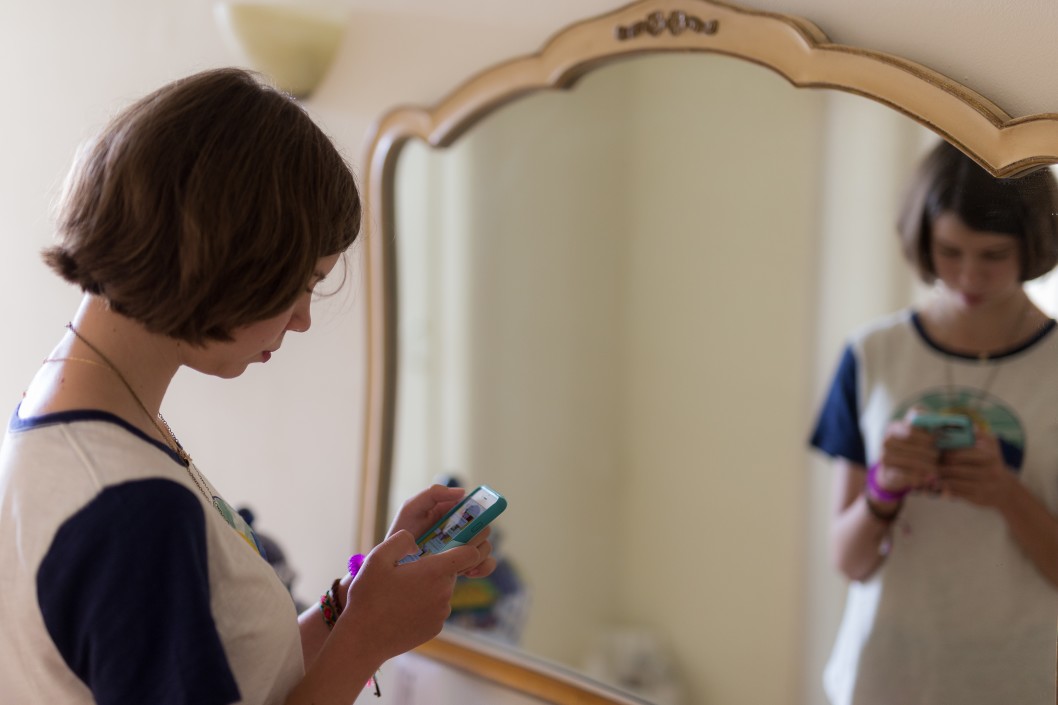Glued To Your Phone? Here’s How To Rethink Your Relationship With Social Media
 “The Internet can crack us open to seeing so many things that we would have never encountered otherwise. And that’s one of the most beautiful, miraculous things about it. But it can also divide our attention and make us feel fractured,” says Chris Stedman, author of IRL: Finding Realness, Meaning, and Belonging in our Digital Lives.
“The Internet can crack us open to seeing so many things that we would have never encountered otherwise. And that’s one of the most beautiful, miraculous things about it. But it can also divide our attention and make us feel fractured,” says Chris Stedman, author of IRL: Finding Realness, Meaning, and Belonging in our Digital Lives.
Finding balance is a constant ongoing individual project, but if it’s something that you want to do, too, here are four tips to help you get started.
Remember, social media is designed to be addicting
It’s no secret that apps and social media companies are competing for consumers’ attention. The more time spent on an app or platform, the better. And that means a series of design choices have been made, to slowly but surely keep us locked in.
When media studies Professor Shaka McGlotten uses an app like Facebook or Twitter, they sometimes wonder whether using social media can be considered a consensual interaction at this point. How much of our social media behavior is ours and how much of it is influenced by the medium itself?
It’s a question that may seem unrelated to our relationship to social media, but like any relationship, McGlotten, who also teaches anthropology at Purchase College-SUNY, says it’s important to take a step back and think about the nature of the relationship itself.
Your relationship with social media is real. Treat it that way.
“We’ve told ourselves that life online is less real than life offline. It doesn’t really count in the same way,” Stedman says. “What that means is if we see something in our own habits online that makes us uncomfortable, we can just kind of wave it off.”
Stedman says if we’re going to have a healthier relationship with social media, we’ve got to stop thinking of it as a mindless activity and start thinking of it as a meaningful one with the potential to reveal certain truths about ourselves.
To mindfully define the relationship that you want with social media, you can ask yourself:
- What does a healthy relationship look like to me?
- What needs am I trying to meet right now?
- Scan your body – how do you feel after an hour online? Is that too much time?
Be an active participant in your relationship. Marie Kondo your social media.
If you’re someone, like me, who spends a lot of time on the internet, taking some time to spruce up your digital space — the same way you would any part of your home — can be helpful.
At least once a year, I go through my ‘following’ list on Twitter, Instagram and TikTok, and clean it out. I ask myself: What accounts are bringing me joy, helping me learn, challenging me or otherwise bringing value to my life? Which ones aren’t?
Take breaks as needed.
Every once in a while, you may see a friend post that they’re doing a social media “detox,” giving up a particular platform for Lentor even deleting everything for good. Being extremely online isn’t for everyone — especially people who have high visibility or who suffer from harassment. The internet is often not fun.
But if you do want to continue to engage, it can be helpful to incorporate breaks into your social media routine to maintain a sense of balance. Stedman says these little breaks function the same way a sabbatical or vacation from work does.
Excerpted from “Glued To Your Phone? Here’s How To Rethink Your Relationship With Social Media” from NPR. Read the full article online. Listen to the podcast of this discussion below:
Source: NPR | Glued To Your Phone? Here’s How To Rethink Your Relationship With Social Media, https://www.npr.org/2021/07/16/1016854764/social-media-balance-relationship-boundaries | © 2021 npr
Do you need someone to talk to? To schedule an evaluation or to get advice about your child’s challenges, call or email a CHC Care Manager at 650.688.3625 or careteam@chconline.org CHC teletherapy services are available now.





